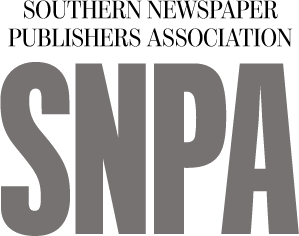NLRB strikes down workplace recording policy
In December, the National Labor Relations Board continued its recent trend of striking down reasonable workplace rules. In a 2-to-1 decision, the board ruled that Whole Foods Market's policy prohibiting employees from secretly recording company meetings or conversations with coworkers or management violated the National Labor Relations Act.
The company instituted the policy in the interest of encouraging open and honest communications between employees, which it felt would be hindered if employees thought their concerns were being recorded. The board did not find this line of reason compelling, declaring that the "intention to promote open communication and dialogue does not cure the rule of its overbreadth." The board based its ruling on its belief that employees could reasonably read the rules to prohibit recording activity that would be protected by the NLRA, such as recording workplace safety hazards.
In his dissent, board member Philip A. Miscimarra pointed out that the rules were more likely to safeguard employees' rights to engage in union-related and other protected conversations, as the policy encouraged them to speak candidly about those rights rather than in fear that their words were being recorded. He further pointed out, "[I]t is not reasonable to find a party in violation of the [NLRA] regardless of what it does." This approach, however, is becoming increasingly common in board decisions.
The board stopped short of declaring all recording policies illegal, but did not give much guidance as to what type of policy would be sufficient. In a footnote, the board suggested that policies prohibiting workplace recordings would be acceptable if they drew a distinction between working and non-working time.
Several states – including California, Illinois, and Massachusetts – prohibit the recording of private conversations, unless all parties involved give consent. In these states, a company prohibition on secret recording would be legal.
"Open Door" Policies Interpreted
In a recent case interpreting the National Labor Relations Act, an employee handbook stated the following:
"Voice your complaints directly to your immediate supervisor, or to Human Resources, through our 'open door policy.' Complaining to your fellow employees will not resolve problems. Constructive complaints communicated through the appropriate channels may help improve the workplace for all."
The National Labor Relations Board ruled that the policy violated the NLRA because it would reasonably tend to chill employees and their exercise of activities protected by the act. The NLRB's position is that employees would reasonably interpret the rule to preclude them from discussing their complaints with their coworkers and others.
The U.S. Court of Appeals for the D.C. Circuit disagreed and reversed the NLRB, with respect to that policy ruling. The court stated:
The handbook urges employees to voice their complaints to their supervisors or to human resources, but the language is neither mandatory nor preclusive of alternatives... Moreover, the handbook does not prescribe penalties for complaints to fellow employees. A reasonable employee would not read the provision, with its exhortatory language and lack of penalties, to prohibit complaints protected by § 7.
Social Media: What is your Legal Liability?
While many companies are aware of the defamation risks associated with social media posts, recent caselaw has made it clear that there may be additional legal liabilities.
A music celebrity was traveling with her four-year-old daughter on Southwest Airlines. While she had a "Business Select" boarding pass numbered A-1, her daughter's boarding pass was numbered A-34. The celebrity wanted her daughter to be able to cut in line, ahead of other Business Select passengers, and board with her. The Southwest agent told her, "If you want to board with your daughter, board with her when she boards normally with the sequence A-34."
The celebrity was outraged and posted the following statements on Twitter, Facebook and Southwest.com:
- "Gracie is 4. FOUR! she wanted her to board by herself or make us wait Till A34. Even though I was business select!"
- "I fly @southwestair at least 75x/year. just had WORST experience. Me; A1, Sadie: A3 Gracie A34. Woman refused 2 let Gracie board w/ me."
- "Nashville. Gate A25. Flight to Denver. Her name is Jennifer. She said "get over it. Follow the rules. Or don't fly."
- "She has done this to me before. She has the WORST customer service. My daughter is FOUR."
- The celebrity re-tweeted: "that is ridiculous! [W]hat did she expect? Her walk on herself & find her seat like a grown adult?"
- "If your [sic] sympathize with me, when you respond be sure & include @southwestair in tweet. They need to know this WRONG."
- "Sadie had MAJOR blowout. I think it's in response to our southwest air experience. She decided to leave them a gift on their plain. Teehee. Asked me what they can do. I don't want free flight. Just apology from Jennifer. It's 4th time she's done it to me. Time will tell."
- "Well, we've caused quite a stir, tweeps. @southwestair just called me. I appreciate their concern & prompt attention 2 the problem."
- "I've got wifi on my flight. I'm impressed with how quickly @southwestair responded to my complaint. I'll keep u posted as to what they do."
The Southwest agent filed suit for defamation and "false light invasion of privacy." While the Tennessee Court of Appeals held that the social media postings were not defamatory, it remanded for trial the issue of false light invasion of privacy. The court asked the question, "Was there such a major misrepresentation of [the Southwest agent's] activities that serious offense may reasonably be expected to be taken?"
The court opined that one can be liable for the tort of false light invasion of privacy if the following occurs:
- A matter concerning another is made public, putting the person in a false light;
- The false light in which the other is placed would be highly offensive to a reasonable person; and
- The person giving the publicity had knowledge of or acted in reckless disregard as to the falsity of the publicized matter and the false light in which the other would be placed.
The court stated:
"We believe that a reasonable person would find, under the circumstances of the incident, that [the celebrity's] posting of selective facts placed [the Southwest agent] in a false light by implying that [the Southwest agent] was a rude and bad service agent, one who is more concerned with adherence to airlines and procedures than the welfare of the child, and that these implications caused injury to her."
The Court of Appeals remanded the case for trial.
Expect to see more litigation like this. People will say things on both social media and e-mail that they would never print on letterhead. There is something about the immediacy of social media that can cause people to say outrageous things. When drafting policies and conducting training, urge your employees to think before they tweet or post – and to always keep in mind the factual context of the subject matter expressed on social media.
Court Vindicates Employer First Amendment Rights
In Intertape Polymer Corp., the National Labor Relations Board ordered a new election due to unfair labor practices, including an allegation that the company engaged in unlawful surveillance when its supervisors handed out anti-union leaflets at the plant gate, alongside union supporters who were distributing pro-union leaflets.
The U.S. Court of Appeals for the Fourth Circuit reviewed the board's decision and found no evidence that the company had expected union representatives to be at the plant gate at the same time when it sent its supervisors out to distribute leaflets. The court further found that the company had a legitimate explanation for being at the gate, and was simply exercising its First Amendment and NLRA 8(c) rights to leaflet its employees during the campaign.
The Fourth Circuit admonished the board, stating that "brief period of simultaneous leafleting" was insufficient to establish that the company acted aggressively or coercively. The Fourth Circuit took a much broader view of the actions of the company; it noted that the leafleting was coincidental and that the company had a right to pass out leaflets at the plant's gate.
The Fourth Circuit ordered the board to reconsider its decision to set aside the election and said the company's small infractions were minor compared to the large margin by which it won its first election. The Fourth Circuit was suspicious of the board's remedy of a new election for such a minor violation.
 |
L. Michael Zinser is the founding partner of The Zinser Law Firm in Nashville, Tenn. The firm, which has a heavy concentration of clients in communications media, represents management in the area of labor and employment. Zinser can be reached at (615) 244-9700 or mzinser@zinserlaw.com.






